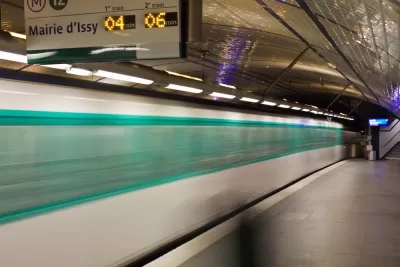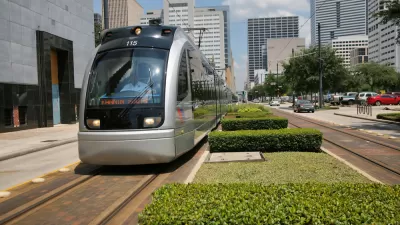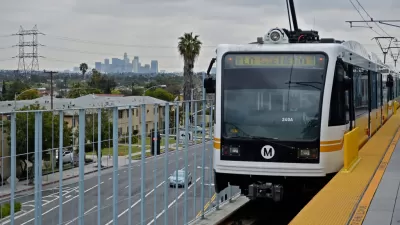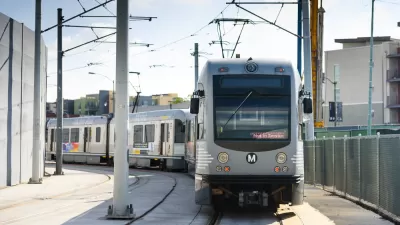The proposed Grand Paris Express program, which began construction this summer and is expected for completion in 2030, will serve 2 million people a day at "wildly fast speeds." Then there's light rail in the United States.

According to Yonah Freemark, "Green Line trains [between Minneapolis and St. Paul] are taking up to an hour to complete their journeys, and even optimistic schedules released by the local transit agency put running times at 48 minutes, or less than 14 mph on average." Other light rail lines failing to light up anybody's radar gun: Houston's North Line, with an average speed of 17 miles per hour, and Los Angeles' Expo Line, with an average speed of 18 miles per hour.
Freemark makes the following argument about how travel times negatively impact the adoption of public transit: "With speeds like those light rail lines or services like the Silver Line, it’s little wonder that it’s so difficult to convince people to get out of their cars in so many places. The fact of the matter is that services like this often do not provide much mobility improvement over the bus services they replace. That’s particularly true for large regions where too many destinations are simply too far away to be accessible by transit that averages such slow speeds."
For comparison, Freemark goes on to detail the ambitious, $35 billion Grand Paris Express program, which "will completely alter the landscape of this large metropolitan area…"
FULL STORY: The value of fast transit

Maui's Vacation Rental Debate Turns Ugly
Verbal attacks, misinformation campaigns and fistfights plague a high-stakes debate to convert thousands of vacation rentals into long-term housing.

Planetizen Federal Action Tracker
A weekly monitor of how Trump’s orders and actions are impacting planners and planning in America.

In Urban Planning, AI Prompting Could be the New Design Thinking
Creativity has long been key to great urban design. What if we see AI as our new creative partner?

Pedestrian Deaths Drop, Remain Twice as High as in 2009
Fatalities declined by 4 percent in 2024, but the U.S. is still nowhere close to ‘Vision Zero.’

King County Supportive Housing Program Offers Hope for Unhoused Residents
The county is taking a ‘Housing First’ approach that prioritizes getting people into housing, then offering wraparound supportive services.

Researchers Use AI to Get Clearer Picture of US Housing
Analysts are using artificial intelligence to supercharge their research by allowing them to comb through data faster. Though these AI tools can be error prone, they save time and housing researchers are optimistic about the future.
Urban Design for Planners 1: Software Tools
This six-course series explores essential urban design concepts using open source software and equips planners with the tools they need to participate fully in the urban design process.
Planning for Universal Design
Learn the tools for implementing Universal Design in planning regulations.
planning NEXT
Appalachian Highlands Housing Partners
Mpact (founded as Rail~Volution)
City of Camden Redevelopment Agency
City of Astoria
City of Portland
City of Laramie





























